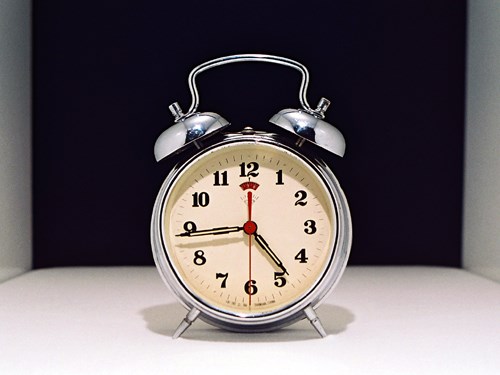Should time limits be imposed on the length of time council members can speak at meetings - or is that undemocratic?
At the July 8 council meeting, Coun. Mary Trentadue put forward a motion that council ask staff to report back on efficiencies council can consider to make its meetings more efficient. The motion suggests efficiencies to be explored should include, but not be limited to, consideration of time limits for council members’ comments and questions, and limits to the number of times a councillor might comment unless they’re presenting new information.
“In light of some of the very long meetings that we have had, I think it would be interesting to consider reducing the time that council has to comment on items,” Trentadue said. “I know it doesn’t occur all the time, but there are times where meetings go very late and council may often take up a lot of time in their comments. I think that that really makes it a challenging environment for the community, but also for other councillors.”
Trentadue said she’s much less likely to comment on an issue if someone has spoken for 30-plus minutes at a meeting.
The motion states it’s important that all members of council and the community have an opportunity to contribute their voices, and it’s important that council undertakes its work and business in a timely and efficient manner.
“In terms of making it welcoming and inclusive, I do think that it’s important that we are able to move things along in a timely manner,” said Coun. Nadine Nakagawa. “I was surprised to learn from councillors in other cities that there is limits on the amount of time people can speak for, the length of meetings.”
Nakagawa said it can be very difficult for council and staff who have care-giving responsibilities to be at city hall all day and night.
“I think I was here 15 hours for the last council meeting,” she said. “I don’t think it’s healthy, I don’t think we make the good decisions. I don’t think we have the best discussion if meetings are that extensive.”
The motion, approved by council at its final meeting before a seven-week summer break, will also have staff report back on how the city can manage council meetings that run past a certain hour.
In a 5-2 vote, council supported the motion. Mayor Jonathan Cote and councillors Chinu Das, Patrick Johnstone, Nakagawa and Trentadue supported the motion, while councillors Jaimie McEvoy and Puchmayr opposed.
“This is a democracy. We represent our constituents. Our constituents have issues that they want us bring forward and I worry about regimenting and setting up time limits where we could lose some of the healthy debate,” Puchmayr said. “We do have some long meetings. We have gone from meeting almost half-a-year down to about 18 regular meetings. I do see that that is causing some of the meetings to run longer.”
McEvoy said he’s in favour of looking at efficiencies, but doesn’t support restrictions on democratic debate. He said the longest debates at council meetings are on issues where council disagrees or on controversial public hearings.
“I just can see the optics of someone being on council and speaking in the opposition, and the optics of the mayor cutting them off before they have finished their comments. I have a real problem with that. I don’t think that is democratic,” he said. “We are here to hear each other. It comes with the job. We are here to speak. We are also hear to listen to each other.”
McEvoy said council could have more meetings if people are concerned about the length of current meetings.
Following last fall’s civic election, council approved its 2019 schedule, which includes 20 regular council meetings, a handful of workshops on council meeting days and eight public hearings. That compares to more than 30 days for regular and committee of the whole meetings, public hearings or special council meetings in 2014.
Prior to September 2015, council held committee of the whole meetings on Monday afternoons where council members discussed agenda items; unless a workshop is scheduled, those items are now discussed in evening meetings.
Cote said he doesn’t see this motion through an “efficiency lens” but through a “taking up space” lens.
“Overall, I think this council does a very good job of respecting everyone’s space and opportunities to contribute, but I think we have all in our lives sat around tables where that space is taken up disproportionately by folks that maybe unintentionally speak for significant amounts of time. There are unintended consequences to how that affects the rest.”
Cote said delegations speaking before council have time limits, and it may be time to consider that for council as well.
“I agree – we have had some pretty late meetings,” Trentadue said. “I am not complaining about doing the job. I am unhappy about making important decisions after a very long day at 10, 11, midnight, having sat in a meeting for 10 to 12 hours. I don’t think we are doing the community a service.”



